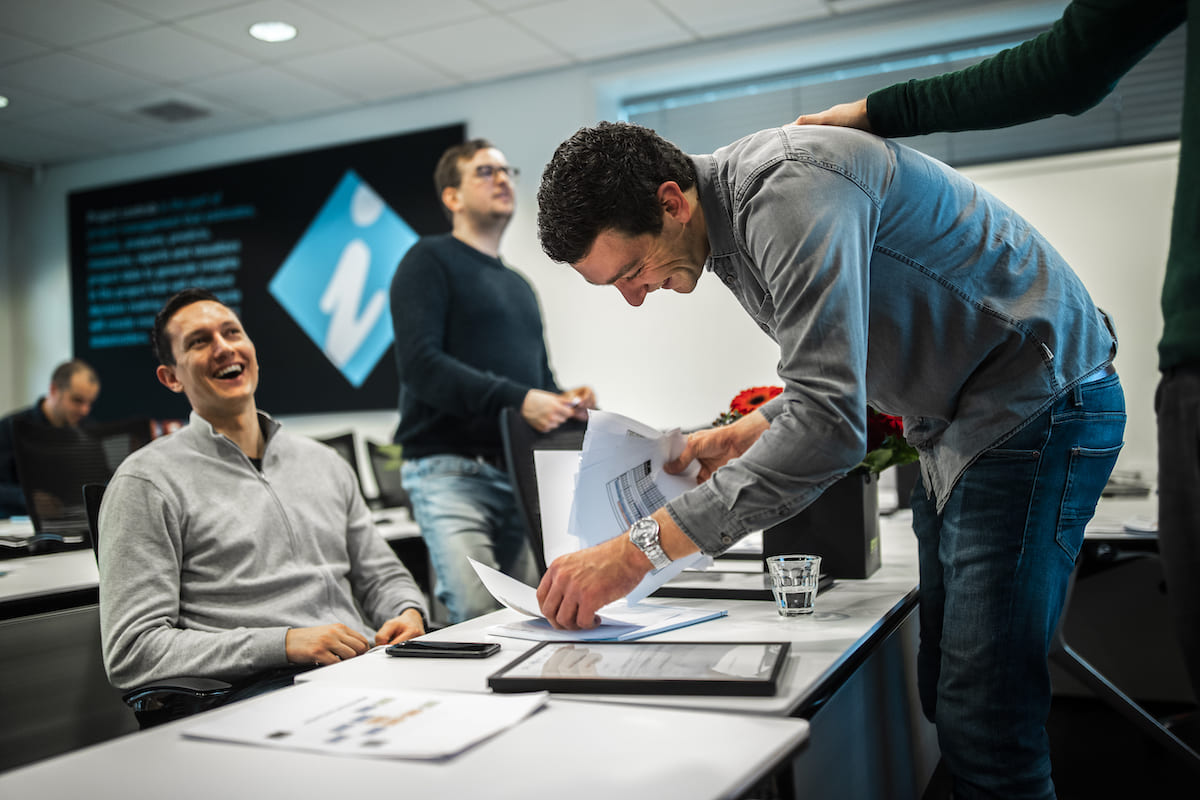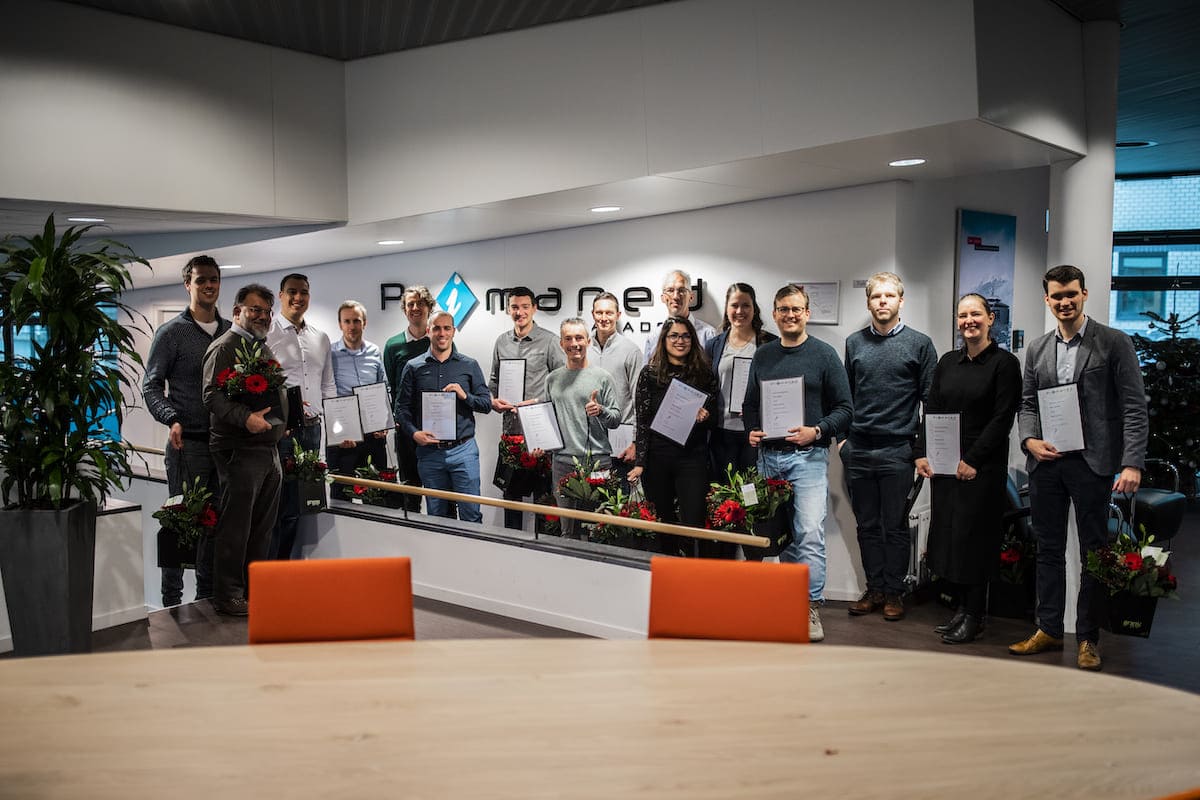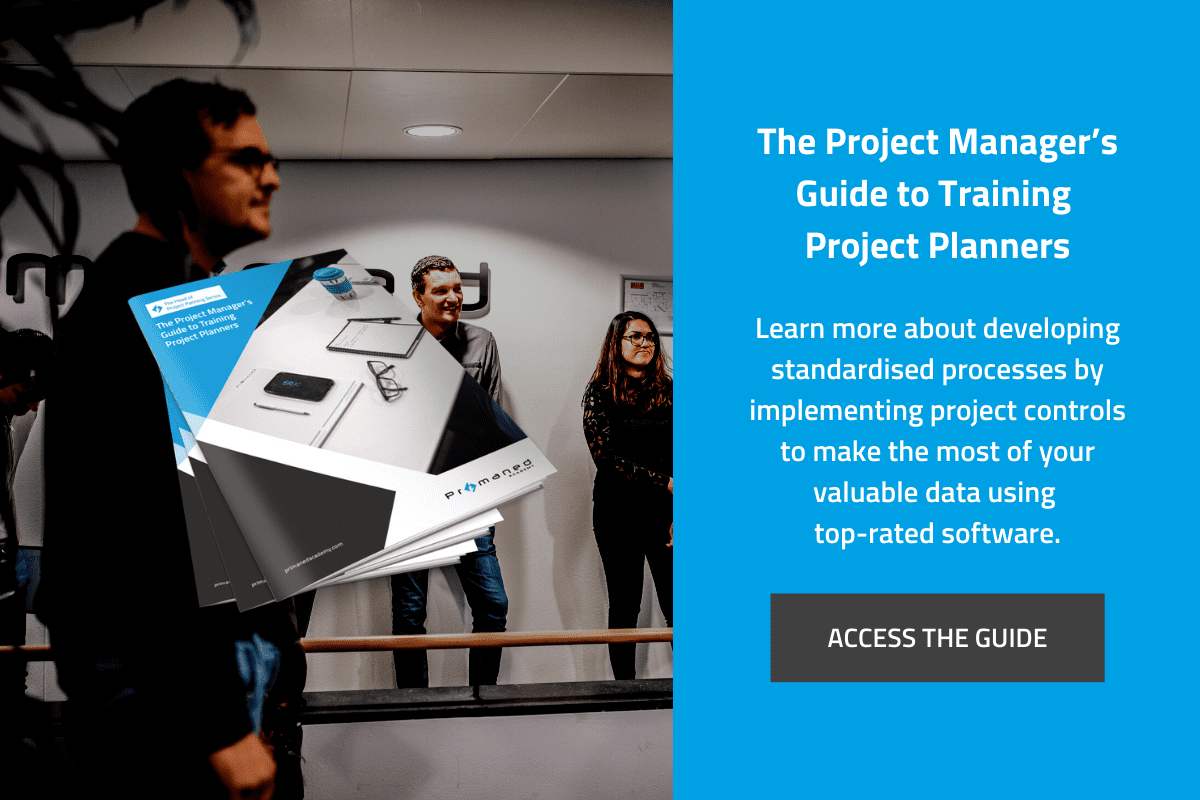How to Hire Graduate Project Planners and Train Them Effectively
By Paul Vogels on Jul 1, 2021 11:20:49 AM

How to Hire Graduate Project Planners and Train Them Effectively
Although you’ll have many different responsibilities as your organisation’s Head of Project Planning, your ultimate job is to develop a professional, future-proofed project management office.
It can be challenging to achieve that without bringing in new, ambitious graduate project planners looking to get started in project controls.
But by now, you’re probably all too aware of the problem: that, even today, there are no clear, dedicated, formal qualifications for keen project planners.
Instead, many graduate project planners come from business, management, or engineering backgrounds.
And while these backgrounds are certainly good for gaining a broad understanding of project management, they often fail to delve deeper into project planning and project controls, resulting in significant gaps in graduate knowledge.
And so, finding skilled graduate project planners can feel like an almost impossible task.
You may feel that, if you were to receive 12 applications from skilled candidates tomorrow, you’d hire all 12 in one go, right?
Especially as your business has grown significantly over the past few years, and demand for project planners is increasing quicker than you can find the people you need to grow your team in the right direction.
How to Hire Top Graduates
Right now, it’s important to try and approach hiring from a different perspective.
Instead of trying to find skilled graduate project planners that are ready to hit the ground running, think about hiring more on personality and ‘soft’ skills, and training recent graduates in project controls and niche project planning skills on the job.
After all, you can never really be sure that a candidate is good at project controls until they start the job anyway, so it’s often best to hire someone that’s willing to learn and grow.
Instead of looking for project controls skills, perhaps think about:
- Communication skills: Communication skills are essential for building very clear plans not only for the project management team, but also for clients, contractors, and subcontractors, too, keeping everyone on the same page.
- Stress management skills: It’s no secret that project planning can sometimes be quite an overwhelming task, with many different aspects all having to come together at the right time to generate success. Being able to handle stress is vital.
- Contract management skills: A good project planner is one who can stay up-to-date with progress and maintain a constant overview and understanding of the project’s contractual requirements to ensure that all milestones are met.
- Adaptation skills: Along with communication skills, good project planners must be able to adapt communications to ensure they are able to present complex information to stakeholders at different levels in a language they understand.
Hiring with these soft skills in mind can open up the candidate pool significantly, and help you bring in great graduate project planners with the core skills needed to succeed in such a role.
The next step after hiring is training and educating planners, and motivating them in the best ways to empower them to do a great job.
This could include fast-tracking their training via Primavera, for example, so they can be out in the field and enjoying their new role that much faster.
How to effectively train graduate project planners
The most obvious place to start effectively training graduate project planners is through a great onboarding process.
Heads of Project Planning often value a good onboarding process, helping new hires to understand the complex organisation, ensuring they feel welcome, and giving them the training, tools, and support they need to really succeed.
The problem, however, is that research shows young workers - such as recent graduates - are more likely to ‘job hop’; to spend just a short amount of time in each role as they work to advance quickly in their career.
Savvy Heads of Project Planning know they need to address the very real possibility that they could be investing resources in developing a great onboarding process, only to have competitors snap up their ‘ready made’ planners.
With this in mind, retention should also play a role in how graduate project planners are onboarded.
These young planners could be provided with benefits beyond the role itself to nurture loyalty, such as:
- Great working conditions: Think about offering attractive ‘extras’ on top of the base salary that can motivate graduate project planners to stick around. Perhaps a company car, iPhone, notebook, training, or workplace benefits.
- Professional development: Show graduates that the organisation is invested in their future by offering professional development opportunities such as a project planning training programme with Primaned Academy for personal guidance and coaching.
- Knowledge sharing: Don’t just offer graduate project planners a job; offer them the chance to be a part of a strong community of people passionate about projects. Why not consider team-building activities and social events to share knowledge?
- OPC (15)
- Software (12)
- PC Boardroom (11)
- Academy (9)
- Consultancy (7)
- Manager Project Controls (6)
- IT / Procurement (5)
- Planning Engineer / Scheduler (5)
- Project/Assets Manager (4)
- Information Manager (3)
- BI & Data Analytics (2)
- C-level (2)
- Document Controller (2)
- Document Management (2)
- Oracle Aconex (2)
- Project Controls (2)
- Risk Manager (2)
- Scheduling Lead (2)
- Operational project staff (1)
- PMWeb (1)
- Resource Manager (1)
- Safran Risk (1)
Subscribe by email
You May Also Like
These Related Stories

The 3 Standard Processes and Skills Needed to Successfully Implement Forensic Planning
The 3 Standard Processes and Skills Needed to Successfully Implement Forensic Planning Let’s face it. Most project planning teams are filled with people who hav …

Project Controls: What is it, and How Can it Help Your Team Deliver Better Project Insights and Planning Performance?
Project Controls: What is it, and How Can it Help Your Team Deliver Better Project Insights and Planning Performance? ‘Projects that come in under budget are th …

The Head of Project Planning Series: People, Processes & Tools, How to Quickly Recruit, Systemise, and Train Project Planners
The Head of Project Planning Series: People, Processes & Tools: How to Quickly Recruit, Systemise, and Train Project Planners No matter what industry you op …



